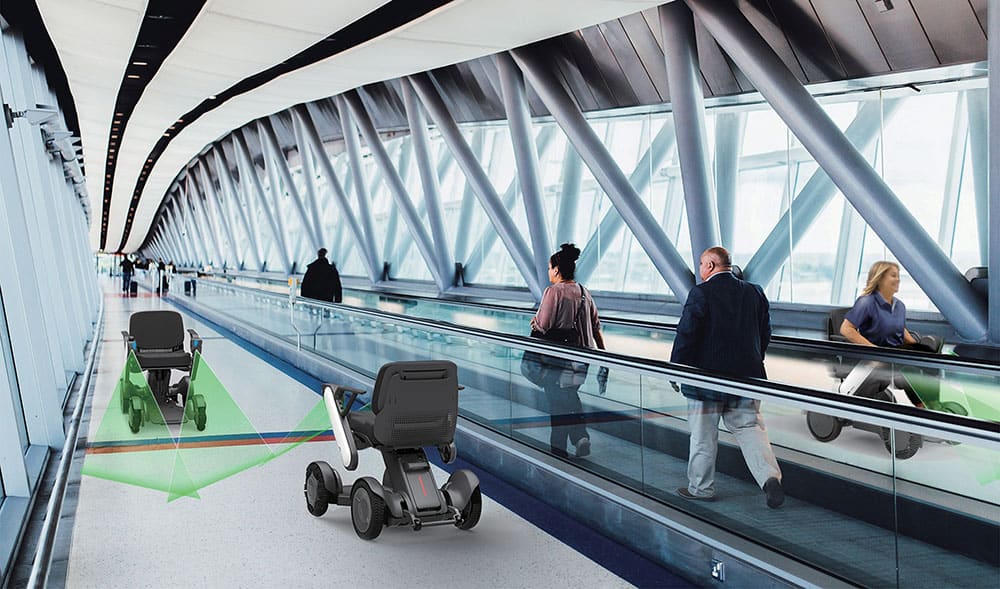Autonomous driving wheelchairs trialled at international airport as MaaS model gathers pace

Passengers with reduced mobility travelling through Japan’s busiest airport will have the opportunity to move throughout the airport freely without the assistance of a staff member via WHILL’s autonomous driving wheelchairs.
A collaboration between futuristic Japanese powerchair manufacturer WHILL, Japan Airlines and Japan Airport Terminal, the trial is taking place at Tokyo’s Haneda Airport and will see the organisations aim to create the world’s first “smart airport” that provides seamless transportation to those with limited mobility
The announcement follows the August merger of WHILL and North American-based provider of rental mobility aids Scootaround, with the two combining forces to develop an international Mobility-as-a-Service (MaaS) model.
Shifting away from the idea of personally-owning mobility vehicles, MaaS centres on the idea of providing transportation as a service available to the public – for example, Uber or public bicycle hire schemes.
Traditionally a space dominated by automobiles and bikes, recently companies have been applying the MaaS model to the mobility aids sector. In October, the major Japanese car manufacturer Toyota unveiled its MaaS vision for mobility alongside unveiling its debut mobility aid range, including a mobility scooter and manual wheelchair power add-on.
Launched in November, the trial at Haneda Airport Terminal 1 South Wing will enable travellers with limited mobility to ride in the wheelchair as its moves unassisted throughout the airport, using sensors to detect obstructions and stop the vehicle automatically.
WHILL’s advanced powerchairs also include real-time gate and boarding updates which can be relayed to the powerchair users in real-time, with the feature set to be introduced in the future.
Satoshi Sugie, Founder and CEO of WHILL, commented: “No one should have to stress over their travel experience – we’re offering a smooth, easy, enjoyable experience through our autonomous Personal EVs, with the goal of changing how people travel in the future.”
With Japan hosting next year’s Olympics and Paralympics, a successful trial of the MaaS model could lead to the transformation of how disabled passengers visiting the country navigate and travel throughout its busy airports.
Atsushi Maeda, Executive Officer, Airport Division of Japan Airlines, said: “Airport travel can cause feelings of stress for customers with mobility issues, and our goal is to alleviate these stresses with the autonomous Personal EVs. This pertains to the overall travel experience, not only in the airport and inflight, but the entire journey from home to destination, enriching the entire experience.”
Click below to check out WHILL’s MaaS vision:


